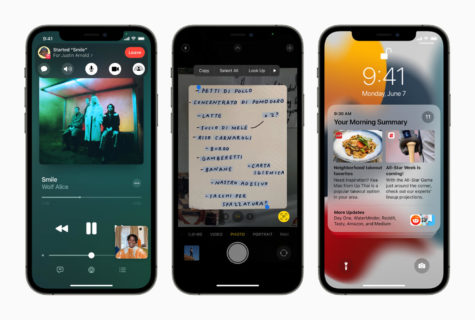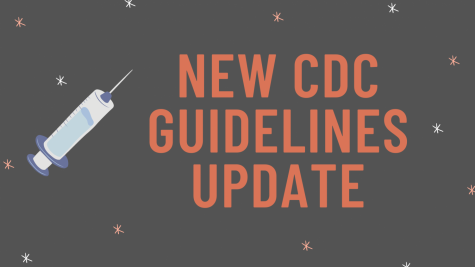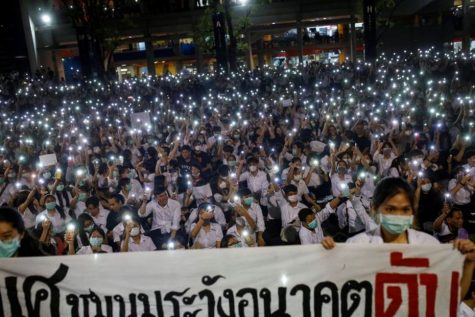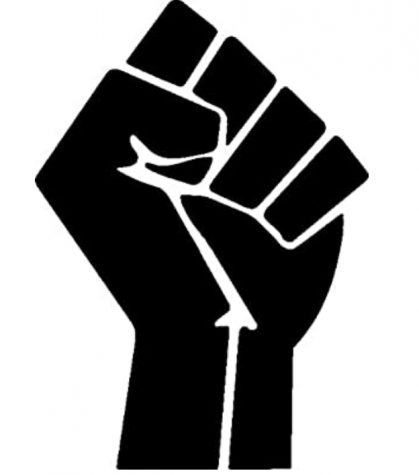The murder trial of Derek Chauvin: What you need to know
Derek Chauvin faces trial for the murder of George Floyd that occurred in 2020
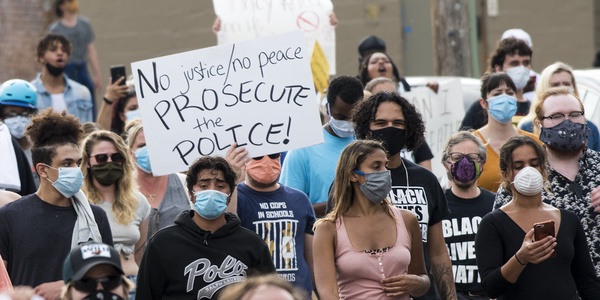
Photo Creative Commons
A sign reading “No justice, no peace, prosecute the police,” from a 2020 Black Lives Matter protest following Floyd’s murder (“Protest against police violence – Justice for George Floyd” by Fibonacci Blue is licensed under CC BY 2.0)
March 28, 2021
Nearly a year ago, George Floyd’s death spiked an uprising of protests for the Black Lives Matter movement and against police brutality in the United States. Nearly a year later, his murderer, Derek Chauvin, is facing trial for his crimes starting on Monday, March 29. The trial is expected to last at least one month.
Floyd died at the hands (or, rather, knee) of Derek Chauvin on May 25, 2020. After purchasing cigarettes at a convenience store with what the worker believed to be a counterfeit bill, Floyd refused to give the cigarettes back. The police were called and Floyd was handcuffed but resisted being put into the squad car. The struggle ended with Floyd’s face down in the street. Bystanders began to film.
Chauvin then placed his left knee onto Floyd’s neck and kept it there for over nine minutes while two other officers helped pin him down, all while Floyd continuously told the officers he couldn’t breathe. The bystanders’ videos showed him going limp and the officers taking him away. Floyd was pronounced dead in the hospital an hour later.
Chauvin, a former Minnesota police officer, now faces second and third-degree murder charges along with a count of second-degree manslaughter. Chauvin’s trial is the highest-profile case of police brutality since 1991 after the beating of Rodney King by LAPD officers after a high-speed chase during his arrest for drunk driving
The 12 jurors (plus two backup jurors) will remain entirely anonymous throughout the trial and decide whether Chauvin will serve time or be acquitted.
The entire trial will be streamed online as well as being televised. The case will focus on two main questions: Did Chauvin’s actions significantly contribute to Floyd’s death? Were Chauvin’s actions reasonable/justified?
The prosecution argues that Chauvin’s actions killed Floyd by restricting his oxygen flow, while the defense claims Floyd died from other causes. However, even though the complete autopsy report classified Floyd’s death as a homicide because Chauvin was restraining him, it also noted that Floyd had heart disease, hypertension and a mix of fentanyl and methamphetamine in his system, both of which can cause cardiac arrest.
Eric Nelson, Chauvin’s defense attorney, is prepared to show evidence that before the fatal incident, Floyd had taken drugs in his car in an attempt to hide the illicit substances from police. His team will point to video evidence that Floyd began to say he couldn’t breathe before being restrained. The team is expected to also use the stance of “self-defense” to justify Chauvin’s actions.
The prosecution is also relying on the video evidence that captured Floyd’s death and testimony from those who witnessed Floyd’s murder (some of these witnesses being under 18 years old). State Lawyers plan to use evidence of Chauvin’s previous recklessness and incidents of police brutality.
As Keith Ellison, Minnesota’s attorney general, has said, “it’s hard to convict the police even when the criminal wrongdoing appears to be in front of your eyes.”
Regardless of the evidence serving in the prosecution’s favor, there is no guarantee Chauvin will be charged. However, considering there are three separate charges of varying degrees of severity, experts say there’s a decent chance the jury will convict Chauvin of at least one.















